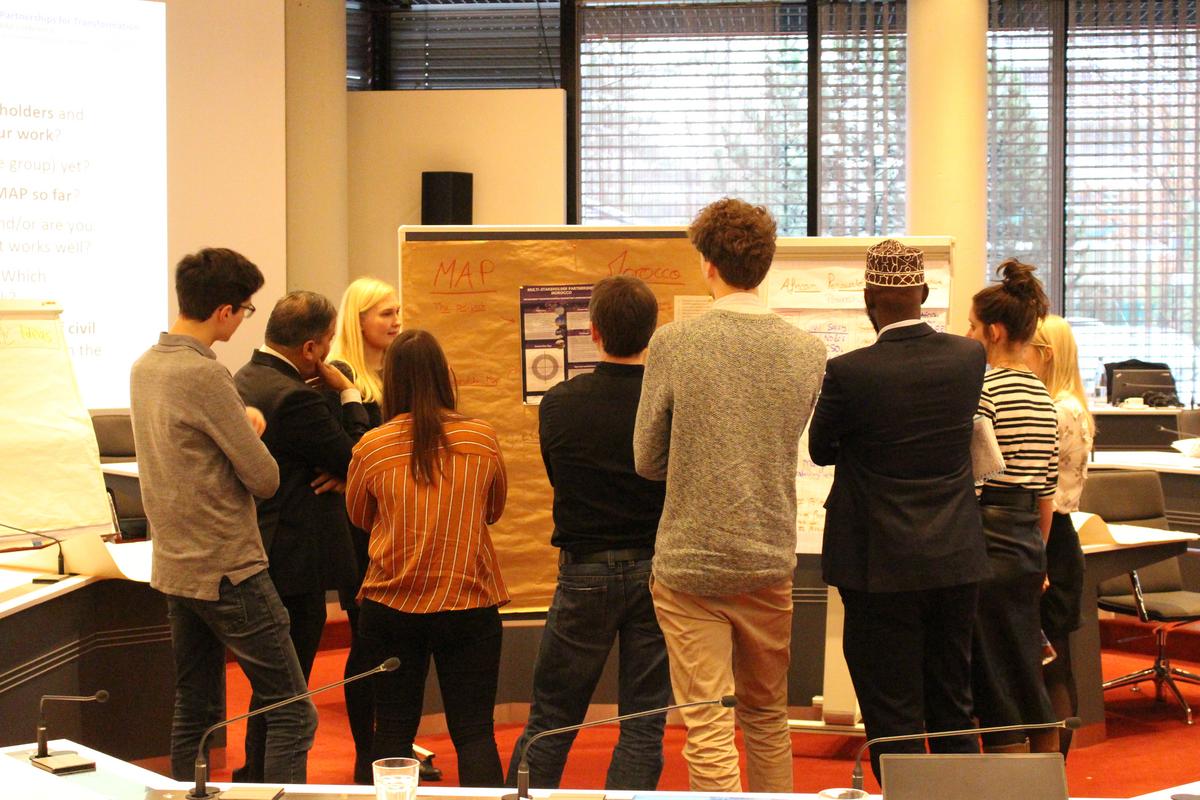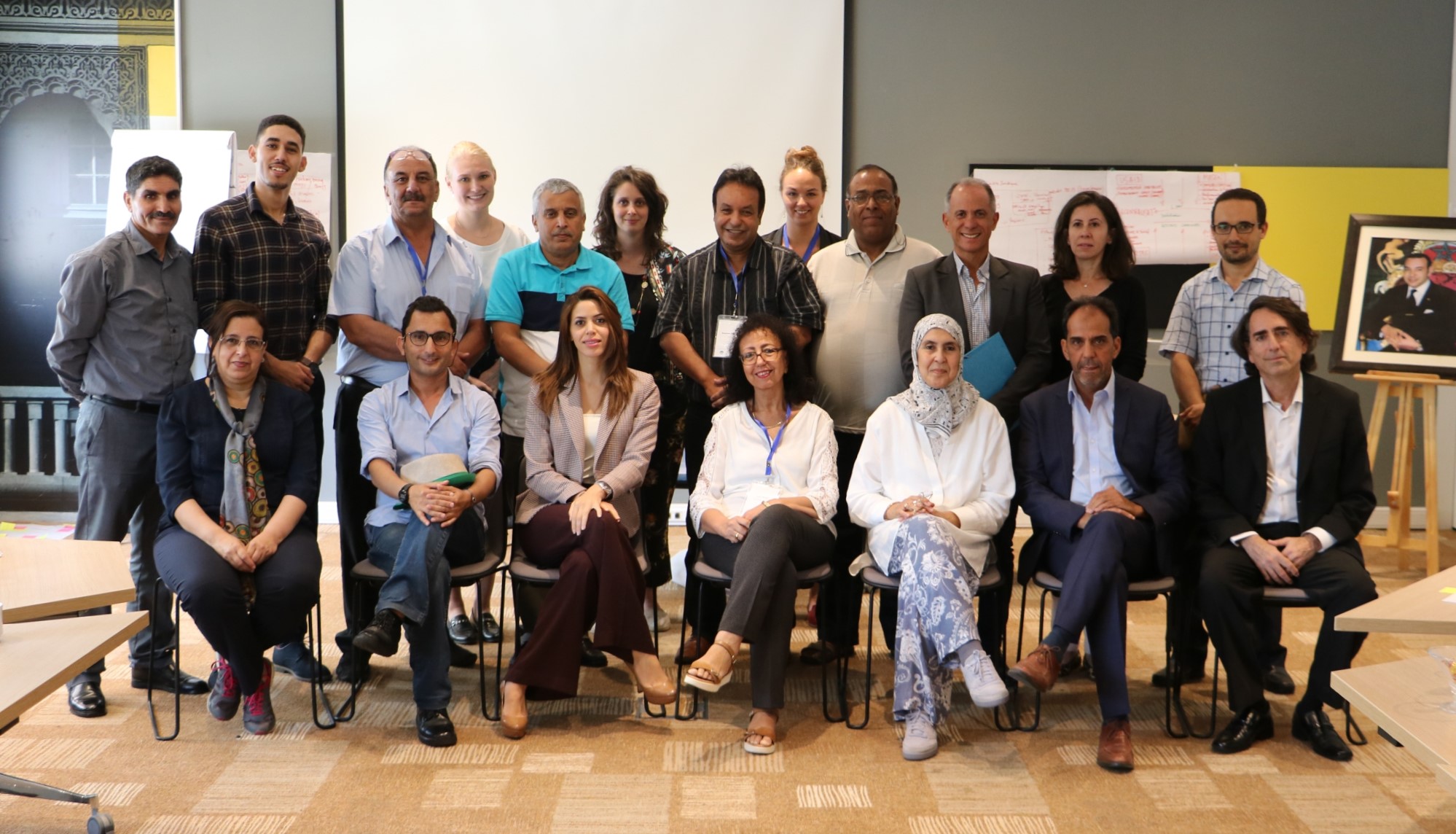By Kerstin Opfer, High Atlas Foundation
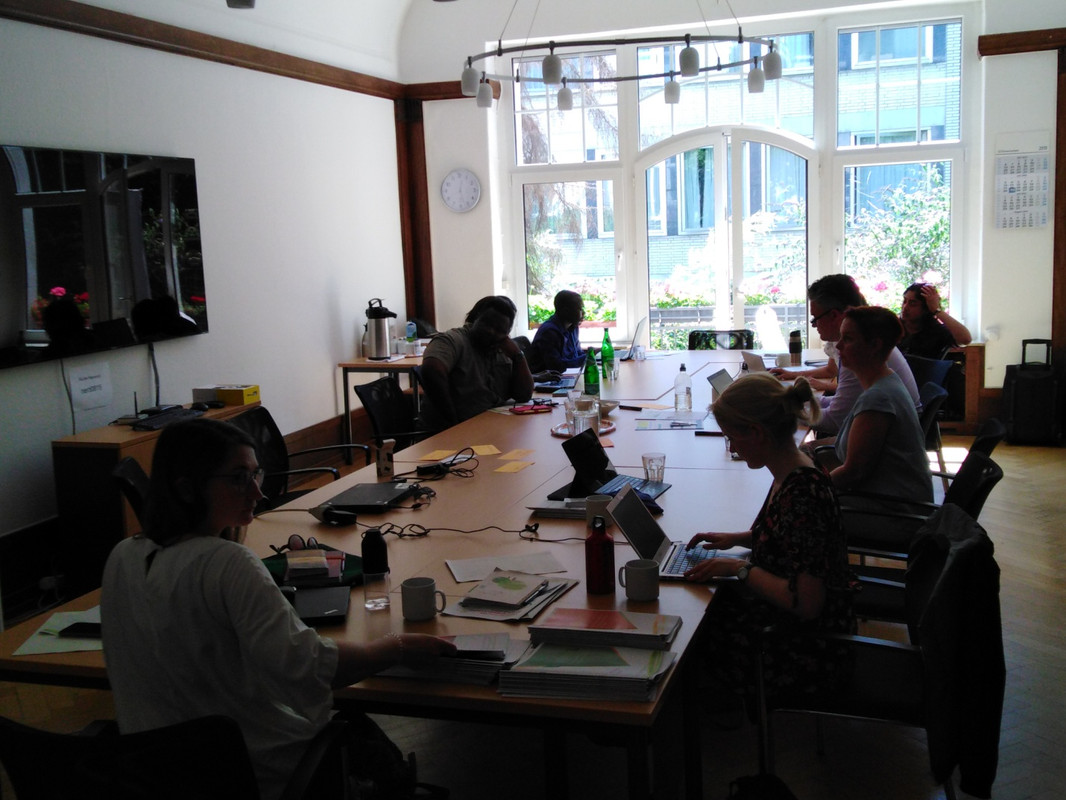
Electricity and energy are two of the key challenges in Africa – 2/3 of Africa’s population still has no access to electricity. Additionally electricity demand is assumed to triple until 2030. Increased use of renewable energy (RE) can help address these challenges. Africa has a considerable and largely untapped potential of renewable energies. Tapping into this potential can help to increase investment as well as broaden electricity access. Additionally renewable energy can allow African countries to become climate leaders and become the first continent to propose a different model for energy and electricity issues through a participatory and people-centred approach. African nations’ energy policies are essential to achieving these goals.
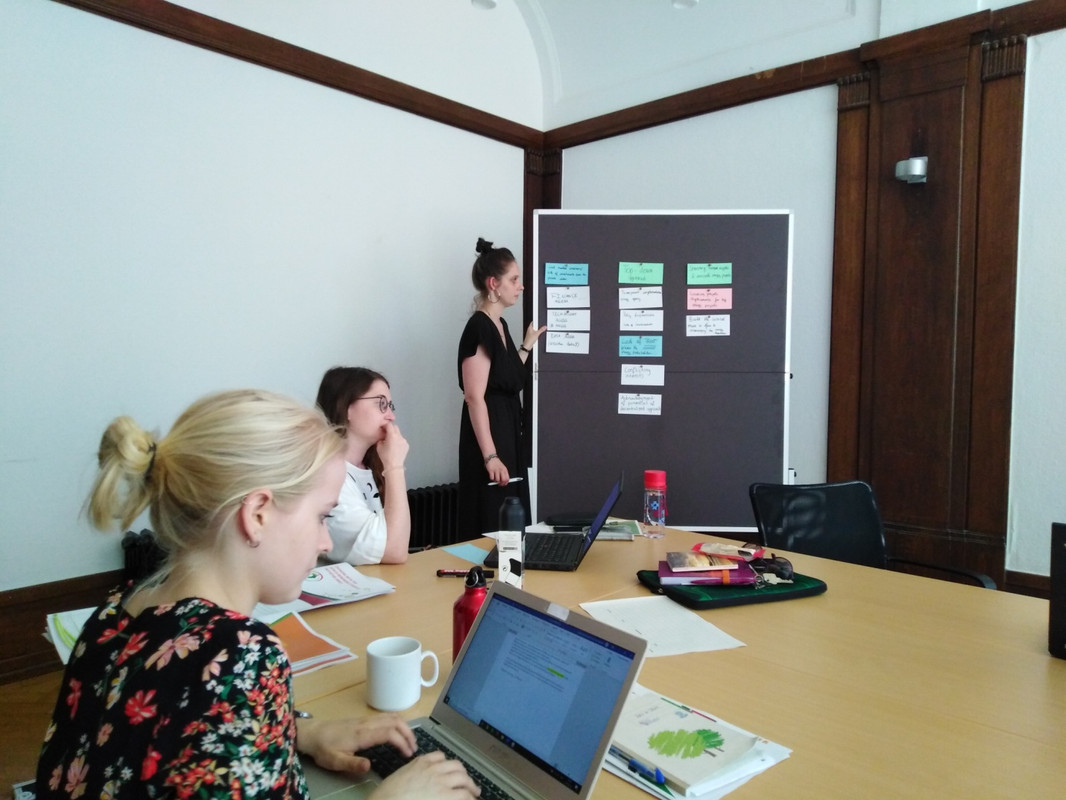
The High Atlas Foundation, Germanwatch and Bread for the World organised a workshop on decentralised renewable energy in Africa during the UNFCCC Climate Change Conference in Bonn, Germany. This workshop aimed to build capacity for African actors and international organisations working on energy and/or in Africa. Attendees from Vietnam, India, Kena, Zambia, Gabon, Germany and England identified access issues, unfavourable policies and structures and impacts on people’s livelihoods and the environment as key challenges for a sustainable, participatory and people-centred energy transition on the African continent.
Access issues are centered around finance, data, technology, skills and quality. Funding for energy projects is often hard to access. Public funds are still too tight and the private sector is often reluctant to invest because of a lack of security and transparency in the energy sector and market. Consequently, often low quality hardware has been installed, which led to a negative perception of renewable energy and created e-waste. Furthermore, the lack of weather data providing information about the availability of resources as well as potential climate risks impedes effective planning of new projects. Last but not least, especially in rural areas, the lack of access to the necessary technology and skills needed to install and maintain RE technology hampers the sustainability of RE installations.
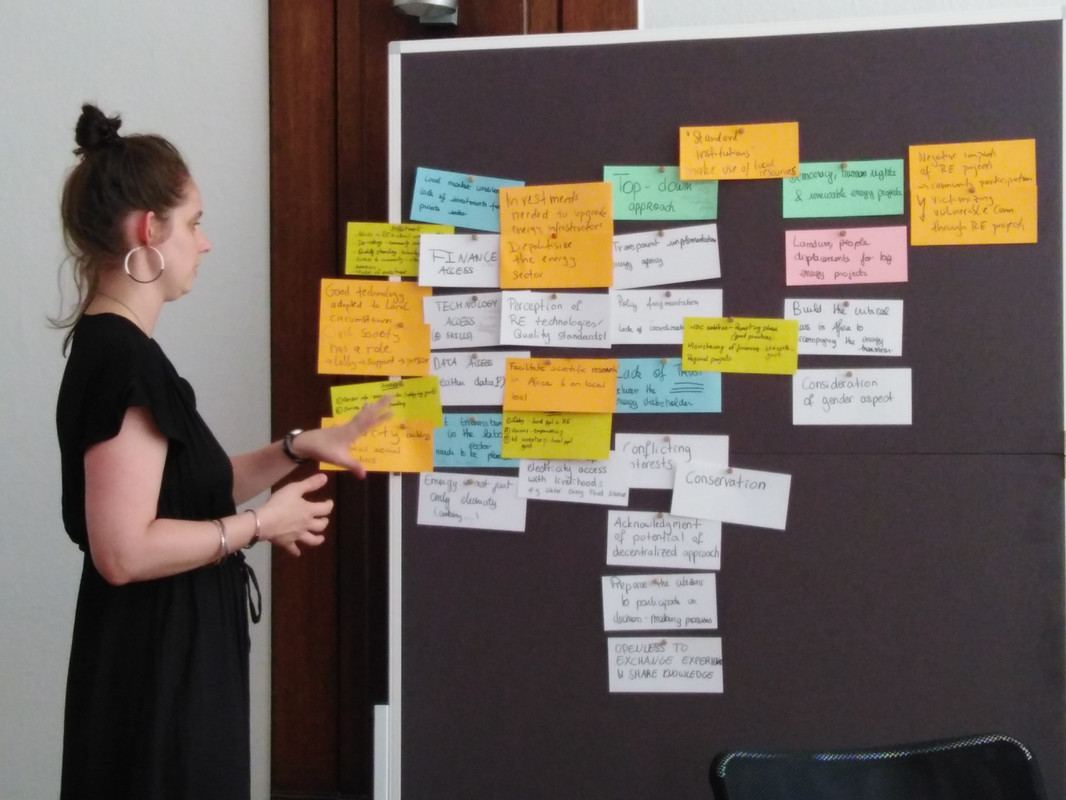
Unfavourable policy and structures are another key challenge. In many places, top-down governance of the energy system and a centralized approach to electrification is the common approach. Decentralized solutions are often only seen as interim ones and their potential is not acknowledged. Furthermore, government-led renewable energy projects are often not transparent because information is not accessible to all stakeholders. This can make it challenging for actors from civil society, local small and medium businesses, academia, youth and women to engage with the government and participate in the energy transition. Most importantly there is a lack of coordination and planning among relevant institutions and policies, such as energy and development ministries, leading to uncertainty and unfavourable investment environment. This is relevant on the regional as well as the continental level, where cooperation in the energy sector is missing.
Renewable energy projects often intersect with human rights and can have negative impacts on the environment. Renewable energy projects, especially the bigger ones, can for example induce water scarcities, displacement and other forms of land use conflicts as well as destroy important habitat for endangered wildlife. Furthermore, when planning a renewable energy transition workers employed in the fossil fuel industries need to be accounted for and good working conditions in the renewable energy sector need to be ensured.
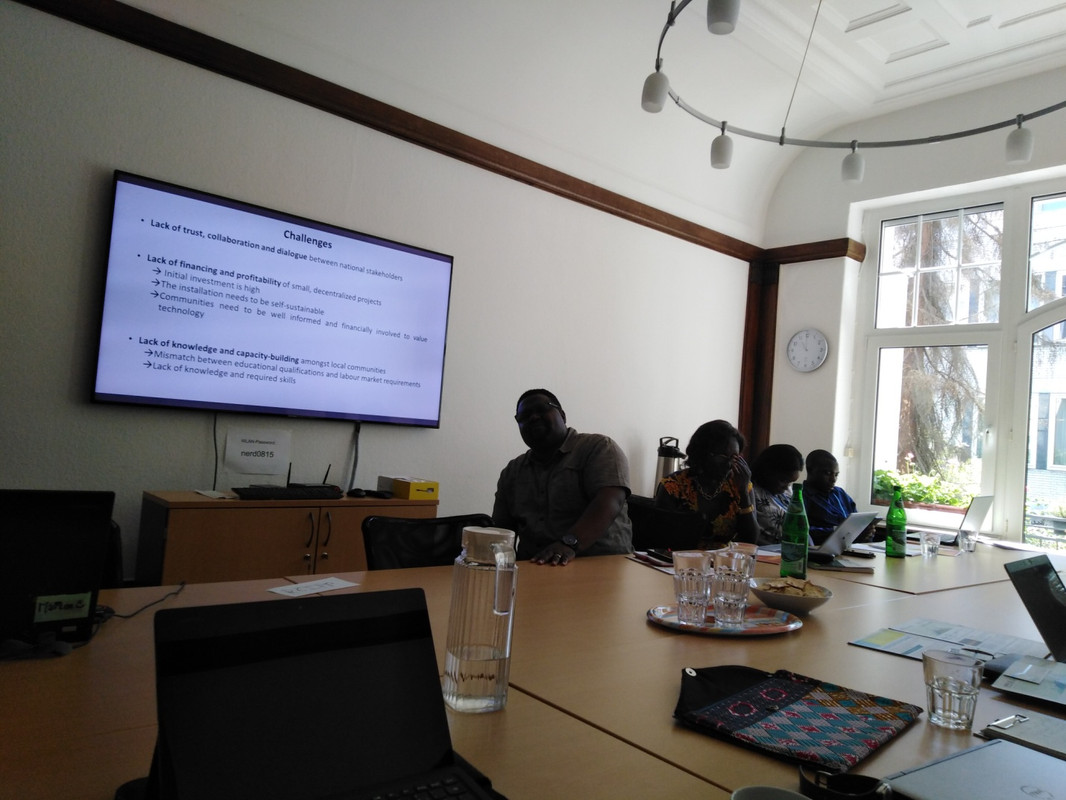
Proposals to tackle these challenges were discussed, which led to the development of the following key recommendations for Africa and the world to achieve a decentralised, participatory and people-centred energy transition on the African continent:
- Role of civil society: An empowered civil society is needed to lobby, support, and pressure institutions and stakeholders to facilitate capacity building, develop safeguards to protect people’s rights and livelihoods as well as the environment, increase community participation and influence governments to include decentralised renewable energy projects in their NDCs to enhance ambition. Capacity building is necessary to a) facilitate scientific research in Africa on the local scale in order to solve the lack of data on social and environmental impacts of renewable energy and lack of weather data and b) to enable local communities to participate in decision-making processes and install and maintain decentralised RE technology.
- Role of government: The government needs to enhance cooperation across sectors (e.g. energy and environment) and the continent as well as facilitate vertical and horizontal integration and collaboration of the individual government departments to enable the development and exchange of best practices for successful implementation of decentralized energy projects. Furthermore, the government needs to develop a safe and transparent policy environment to create certainty for all actors, attracting long-term investments.
Role of finance: Investment in the energy infrastructure and long-lasting, high-quality renewable energy technology is needed. To achieve this the development of national quality standards for RE technology is imperative. Furthermore, funding needs to be easily accessible for local communities. Finding green financing solutions through green bonds or the sale of carbon-credits could be an innovative way to solve the finance issue.
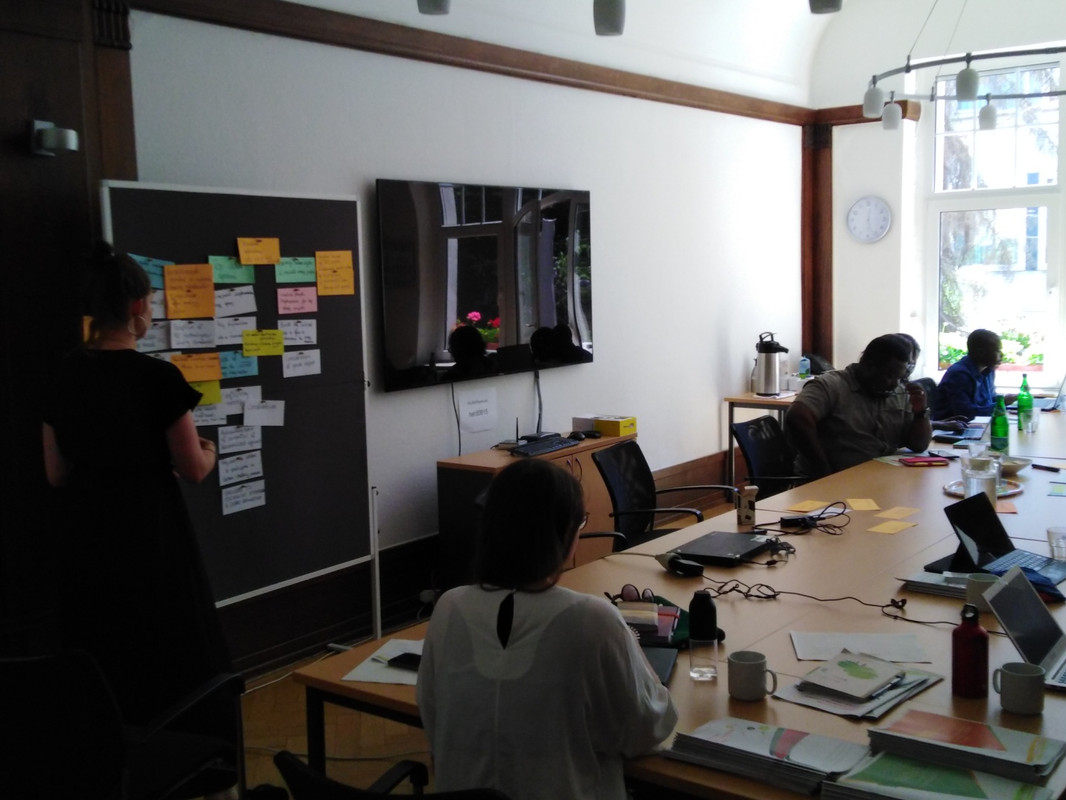
The considerable RE potential presents an enormous opportunity to tackle electricity access issues and the rising electricity demand on the African continent. Furthermore, promoting the use of decentralised, participatory and people-centred renewable energy can allow African countries to become the world’s climate leaders and the first continent to propose a different model for energy and electricity issues. This workshop helped African and international actors to develop tools to advocate for such a new and innovative model. We thank all participants for their active contribution and Germwanwatch, Bread for the World and the High Atlas Foundation for organising the workshop.
Give to this project.
